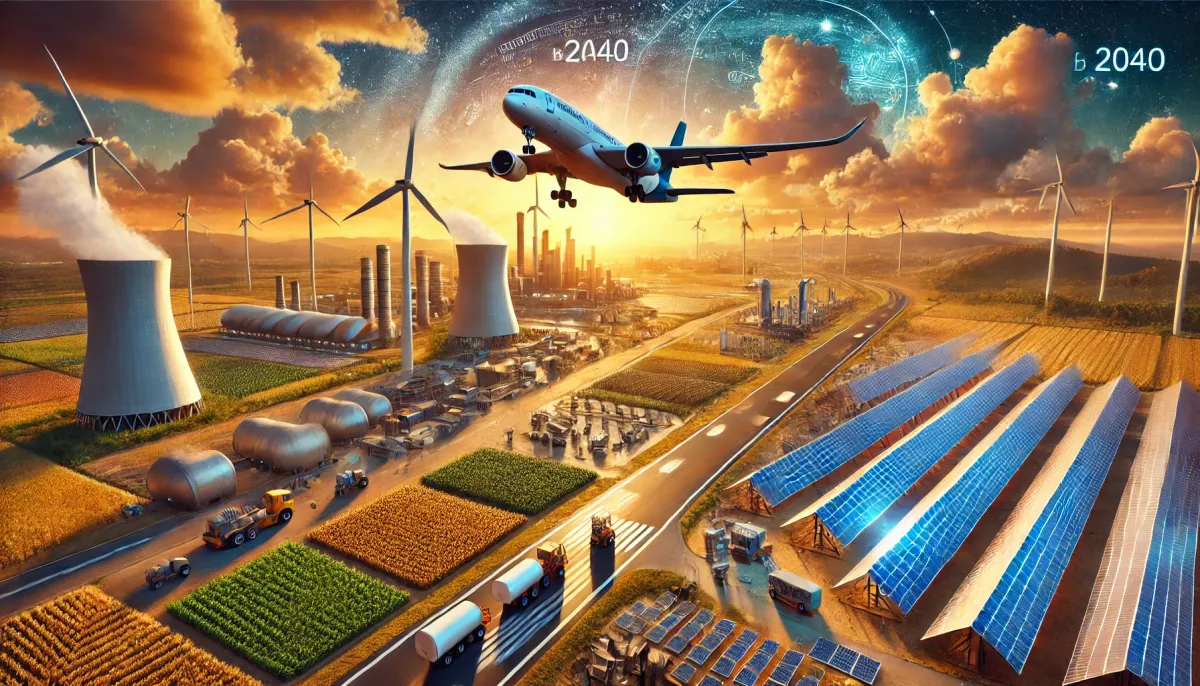India Set to Become a Global Leader in Sustainable Aviation Fuel Production by 2040: Report

India has the potential to produce between 8 to 10 million tonnes of Sustainable Aviation Fuel (SAF) annually by 2040, according to a report from Deloitte India. Achieving this ambitious target will require substantial investments in the range of $70-85 billion (approximately ₹6-7 lakh crore). The report highlights that this level of SAF production will not only meet but exceed India's estimated domestic demand, which is projected to be 4.5 million tonnes for a 15% SAF blending mandate in all flights by 2040.
Economic and Environmental Impact
The investments in SAF production will play a crucial role in the decarbonization of India's aviation industry. The report estimates that the increased production could reduce the country’s carbon emissions by 20-25 million tonnes annually, contributing significantly to India’s climate goals. Additionally, it is anticipated that the SAF value chain will generate employment opportunities for 1.1 to 1.4 million people across various sectors.
Boost for the Agricultural Sector
The Deloitte report also emphasizes the vital role that agricultural residues can play in SAF production. By 2040, India is expected to have a surplus of 230 million tonnes of agricultural residue, which could be used as a sustainable feedstock for SAF manufacturing.
Ethanol, which is derived from agricultural waste, is a key component in the Alcohol-to-Jet (AtJ) technology used for SAF manufacturing. The availability of abundant agricultural feedstock makes India well-positioned to capitalize on this production method, supporting a circular economy where waste products are converted into valuable resources.
Technological Innovations and Future Feedstocks
As SAF production technology advances, India can diversify its feedstock sources to include used cooking oil, industrial waste, municipal solid waste, seaweed, and crops like sorghum.
This diversification will further enhance the sustainability of SAF production and reduce the environmental footprint associated with conventional aviation fuels.
Strategic Advantages in the Global Market
India’s geographical proximity to major airline hubs, coupled with its cost-effective production structure, positions it strategically in the global SAF market. Prashanth Nutula, a partner at Deloitte India, noted that these factors give India a competitive edge, enabling it to emerge as a leading supplier of SAF to international markets.
The country's ability to scale SAF production and offer a sustainable aviation fuel alternative at competitive prices could attract airlines seeking to meet their carbon reduction targets.
India’s Roadmap to a Greener Aviation Sector
The commitment to SAF not only aligns with India’s broader sustainability goals but also supports the government's initiatives to promote green energy and reduce greenhouse gas emissions. As the aviation sector continues to grow, the shift towards SAF will play a pivotal role in ensuring that the industry meets its environmental targets.
This move towards sustainable aviation practices is also expected to stimulate economic growth and create new avenues for innovation in the energy and transportation sectors.